Fakhri Malekpour is not fond of interviews. Over many years, this quiet but remarkable force in the world of Iranian music has spoken to the media only once or twice. According to one of her closest associates, her common refrain is: “I must pay tribute to my master. I do not look for fame.”
She was the sole direct student of pianist and composer Morteza Mahjubi (1899-1965), a master of Iranian Piano, and devoted her life to keeping her master’s memory and school alive. “Students still come,” says the same close associate, “and Fakhri teaches them from the 12 volumes her master has left behind, using Morteza’s innovative technique of music notation.”
Mahjubi, a piano virtuoso, is considered one of the forefathers of Iranian national music. He is variously known as Morteza Khan or Morteza Khan Mahjubi in artistic circles. What gave his work special significance was his ability to perfectly play authentic Persian music on European instruments. For this reason, his music is considered a singular hybrid blend of the traditional and the modern.
Growing Up with Music
Fakhri Malekpour was born in 1935 in the northern Tehran neighborhood of Shemiran. Mahjubi started teaching her music when she was only seven. “My father, Seyed Zabihollah Malekpour, was an esteemed merchant who loved music,” she said in a rare interview with the newspaper Ettela’at. “He played the tar, the setar and the piano well. He had an extraordinary voice. The music masters of that time would come to our house on Tuesdays; Mr. Morteza Khan Mahjubi came at 11 a.m. and stayed into the night.”
Music became a more serious pursuit for Fakhri Malekpour when she reached the age of nine: “I grew up with Morteza Khan Mahjubi and [poet and musician] Rahi Moayeri. They came to our house because they were friends with my father. One day Morteza Khan told my father that ‘this child has a strange love for music,’ and he asked my father to teach me the piano. I was seven when I first sat behind it. I was playful until I was nine, but from the age of nine it all became very serious for me. Morteza Khan came to our house regularly to teach me.”
Her talent and passion encouraged Mahjubi to continue teaching her for 12 years. “He began with the Persian scales,” she later recalled. “Then I learned Mahjubi’s radifs (a collection of old Persian melodies) from him. He had devised a system of notation for Persian music that other students and I can also read now. I do not remember his other students. In fact, I was the only one who continued with music seriously.”
Fakhri Malekpour has never accepted any money in tuition fees from her students. She chooses them, i.e. she must first see some talent in them to accept them as students. “I teach only because of my master, to preserve his name, she told the Iranian Students’ News Agency (ISNA) in an interview in 2016. “I don’t want to receive money from anybody and I am proud that, as of now, I have not received even a penny from teaching music.”
Preserving the “Golden Age” of Iranian Classical Music
Malekpour is not just a pianist but she is also skilled in Persian classical instruments and has learned the basics of composition. Her later teachers were among the luminaries of Iran’s “golden age of music,” which she believes ended more than half a century ago: Ahmad Ebadi, who taught her the setar, Hossein Tehrani, with whom she learned the tonbak (an Iranian goblet drum), and Ali Tajvidi, with whom she practiced elementary music composition. Her home is full of photos of these masters and their contemporaries. Morteza Mahjubi, however, remains the main object of her devotion. “I was Morteza Khan’s daughter,” she said. “He had no children and loved me as the daughter he never had. When he saw my passion, he taught me all he had learned and developed. I am so proud to be known as his sole direct student.”
Malekpour loved the setar but felt forced to abandon it in order to retain her title as the guardian of Morteza Mahjubi’s heritage. “One day,” she said, “Mr. Ebadi called me and said: ‘You are like my daughter. I want to tell you something, but I hope it doesn’t hurt you. You play the setar beautifully. But do not touch the setar anymore. After Morteza Khan, who improvised while playing piano, it is only you who does the same think now. We do not have anybody like Morteza Khan. We have a lot of pianists, much better than you. But nobody plays the Iranian piano like you. If you touch the setar, you will not play piano. So you must promise me not to touch the setar anymore.’ In short, I put the setar away and cried for a long time. But for Mr. Ebadi’s sake I did not touch the setar anymore.”
Not after Fame
Malekpour has never given a concert. Her modesty and humility is such that when asked during her interview with ISNA about the subject, she said: “I will never give a concert even if they kill me. In private I do not play badly, but I do not like to play the piano in front of others. I wish to remain private. The albums you see of me were released on the insistence of my friends.”
Since the beginning, Malekpour has preferred to play for herself and not sought fame: “I did not respond to invitations by radio stations. I am not that kind of person. I do these things for myself.”
Her friends and companions say that the history of Persian music is inscribed in Fakhri Khanum’s heart. Her sweet memories of musicians are a regular topic of her daily conversations with others. In the interview with ISNA, the reporter noted: “Amid the conversation, she remembers her old friends: ‘Do you see that armchair in front of the door? [The singer] Moluk Zarabi always sat there. Before arriving she would ask me to make [an Iranian dish and dessert] for her. She dropped by every week. [Singers] Elaheh and Marzieh also socialized with me a lot. Now they have all gone and I am the only one who remains.”
Regarding her unreleased recordings, Malekpour said: “There is a tremendous volume of unreleased works in this house, recorded with great masters. For example, I have recordings with [composer and violinist] Parviz Yahaqi, and with [barbat player] Abdolvahab Shahidi. Perhaps I will release them later. I have no idea what will happen.”
In recent years, Fakhri Malekpour has received public acclaim on several occasions. In 2017, at a ceremony held in Vahdat Hall [Roudaki Opera House before the revolution] in Tehran, Malekpour’s small pupil Mahur Aqili played the tonbak in honor of his master, accompanying the singing of classical Persian singer Salar Aghili. She was also commended at the 34th Fajr International Music Festival in February 2018, just a month after being awarded a National Special Music Prize. At every occasion she mentioned her own master Morteza Mahjubi.
According to the prominent music researcher and critic Alireza Mir-Ali-Naqi, “Fakhri Malekpour is the fruit of the old Iranian educational, artistic and ethnic music era, a period in which the current practice of showing off and disrespecting one’s roots was not customary.”
“It was a culture that preferred emotion to sensational form and skill, and recognized the master not in preservation of what is learnt but in creating an inner transformation and psychological refinement of melodies,” he said.
“Her presence is not only a cultural heritage, but a treasure-trove of gems for our contemporary music and its crisis-ridden atmosphere, because she has made an impact in all respects and has propagated a genuine school of music performance by retaining its characteristics, all by herself.”




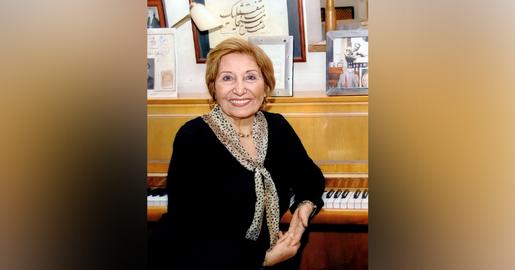
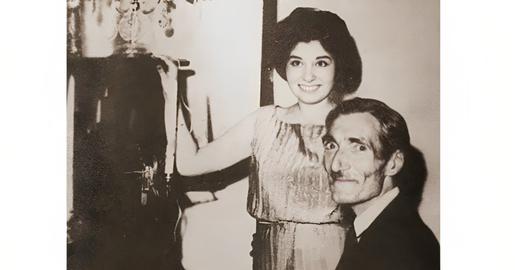
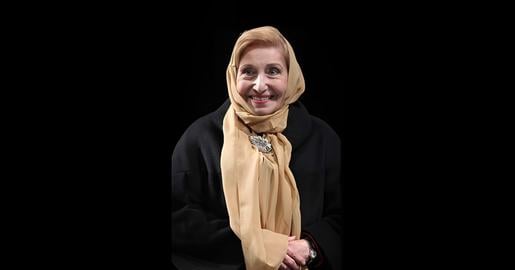
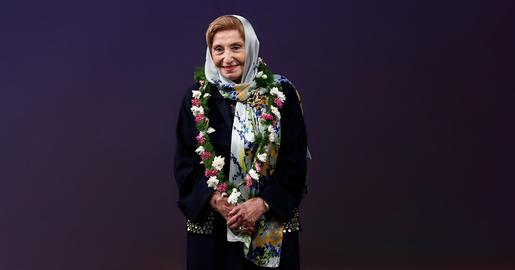





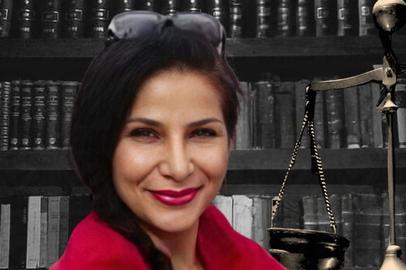


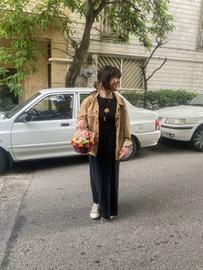
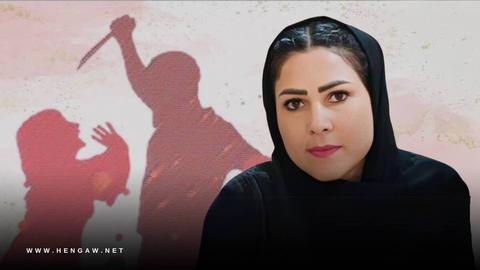


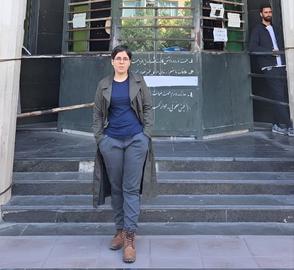
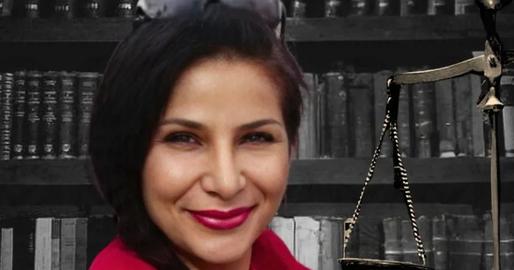


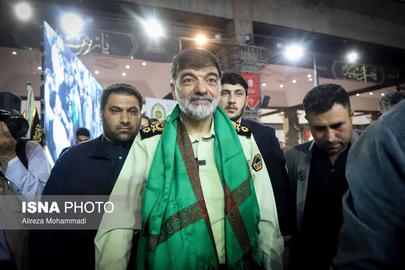

comments